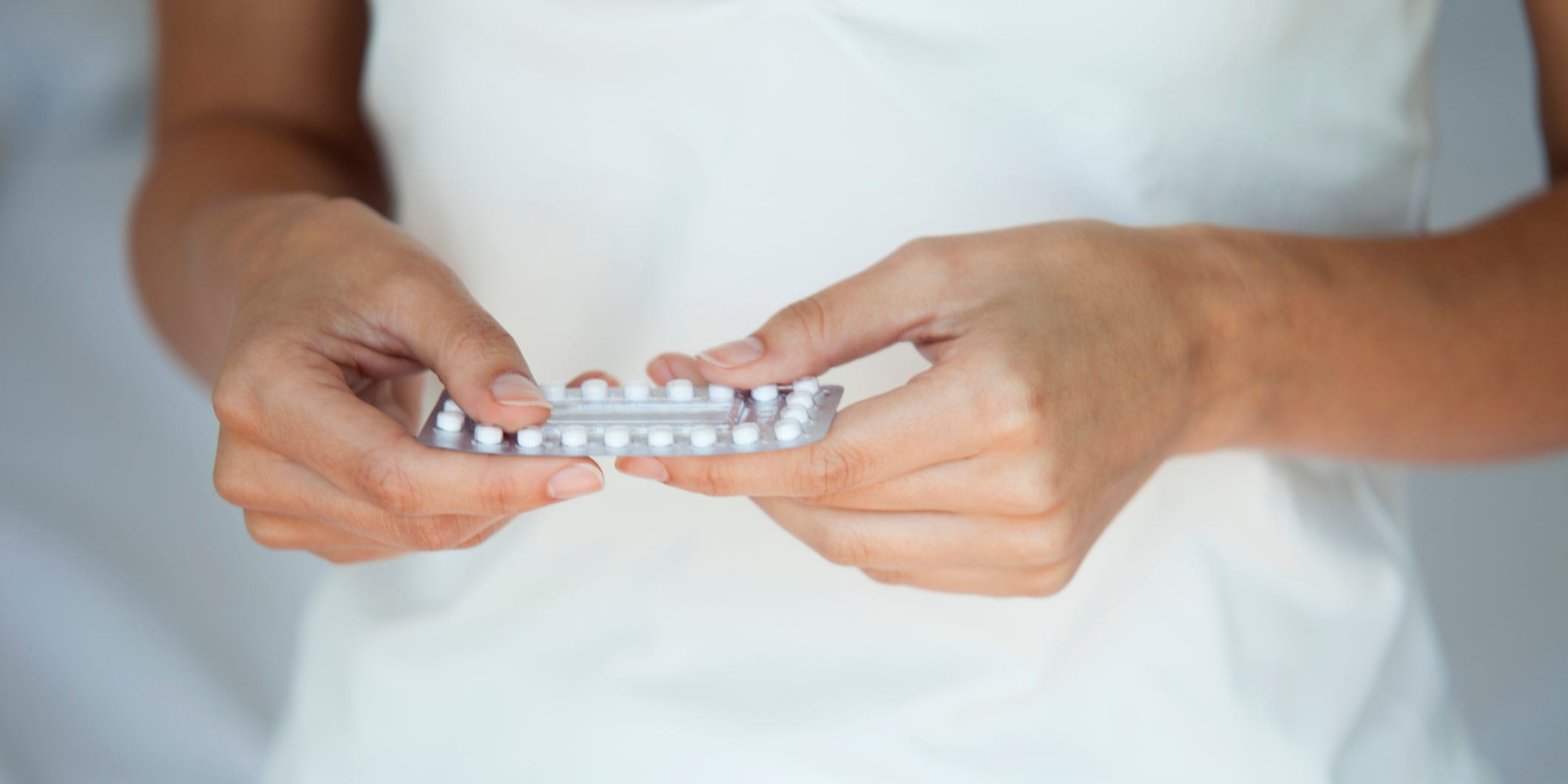
PhotoAlto/Ale Ventura/ Getty Images
- Birth control can help treat some of endometriosis symptoms like pain and heavy period bleeding.
- Estrogen-progesterone birth control pills are considered the best at treating endometriosis.
- Hormonal birth control can relieve the pain, but it can’t treat endometriosis, itself.
- Visit Insider’s Health Reference library for more advice.
Endometriosis is a disease in which tissue similar to the uterine lining grows outside of the uterus. Though incurable, endometriosis can be managed via hormonal treatment in the form of birth control which includes pills, patches, injections, and even the progestin containing IUD. In fact, birth control is often used as a first line treatment for endometriosis.
“There’s no cure for endometriosis, but there are ways to help manage symptoms including birth control,” says Benjamin Todd Thatcher, DO, and chief medical officer of Valley Behavioral Health. “Birth control pills often reduce the menstrual cramping and pelvic pain that may be associated with endometriosis.”
While birth control is a popular pain management option for individuals with endometriosis, it may not be the best treatment tool long-term – or even short-term, depending on your specific situation. In some cases, other medications or surgical treatment may become necessary.
Here’s how birth control may help with pain management if you’ve been diagnosed with endometriosis or are experiencing one or more symptoms associated with the disease, including, but not limited to, dysmenorrhea (painful periods), pain with intercourse, or pain with bowel movements or urination.
Does birth control stop endometriosis from growing?
While hormonal birth control doesn’t stop the growth of endometriosis, it does suppress it. This is because hormonal contraceptives inhibit ovulation, decreasing the levels of estrogen in the body.
"Estrogen is what causes the growth and progression of endometriosis," says Paul MacKoul, MD, a laparoscopic GYN surgeon and co-founder at the Center for Innovative GYN Care.
While hormonal birth control does contain estrogen, it can actually slow the growth of endometriosis as well as control bleeding with menstrual cycles, says MacKoul. Moreover, some people may choose to skip the placebo week if they're on the pill, which helps them to skip a period altogether.
Who should take birth control for endometriosis?
Before taking birth control for endometriosis your healthcare provider should do a medical history check to ensure it's safe for you to do so, as some people cannot take hormonal birth control due to a preexisting condition.
Some experts may recommend that you undergo a laparoscopy - a surgical procedure used to diagnose endometriosis - before taking birth control for endometriosis, while others may not
You may also find a healthcare professional who will prescribe birth control if you're exhibiting tell-tale signs of endometriosis, but haven't been officially diagnosed via a laparoscopy. In fact, birth control is often a faster, less expensive option to treat endometriosis symptoms if you can't afford, or don't have time, for a laparoscopy.
Individuals who have one or more of the following conditions or symptoms should not take hormonal birth control pills or should consult their doctor before taking them:
Which birth control pill is best for endometriosis?
"Usually, estrogen-progesterone pills are best, but often, progesterone-only pills can be effective," says MacKoul. "IUDs and other progesterone-only methods are helpful for some patients with certain disease stages as well."
Some other examples of progestin-only birth control include:
According to the Endometriosis Foundation of America, some individuals with endometriosis tend to respond better to high-progestogenic pills.
In a 2017 study progestin-only pills were praised for their effectiveness at treating endometriosis-related pelvic pain. Researchers also noted that both norethindrone acetate and dienogest - progestin-only oral contraceptives - may be a better option when compared to combined estrogen-progestin birth control pills.
Taking hormonal birth control may help with your pain levels, but you may experience side effects like, moodiness, headaches, or tender breasts, depending on the type of birth control you take.
When forming your pain management plan, ask yourself: Do the pros outweigh the cons?
According to a 2003 review, progesterones are effective in treating endometriosis-related pain in approximately three out of four people. Even so, this method of pain relief is limited to individuals who do not wish to have children in the short-term.
Insider's takeaway
While birth control isn't always the best treatment option, it's there and is a viable option for treating endometriosis-related pain. Depending on the person, birth control can be a successful way to manage endometriosis symptoms.
"Above all, it's important for patients to know the level of disease that is present and work in partnership with their medical team for proper treatment and disease management," says MacKoul.
Related stories about Health Reference:
- Yes, birth control helps with cramps but some methods are better than others
- Heating pads, exercising, ibuprofen, and other ways to get rid of period cramps
- Yes, you can still get pregnant if you've had your tubes tied
- You can get pregnant with an IUD but it's extremely rare
- What endometriosis feels like: First-person accounts from people who live with and manage the condition